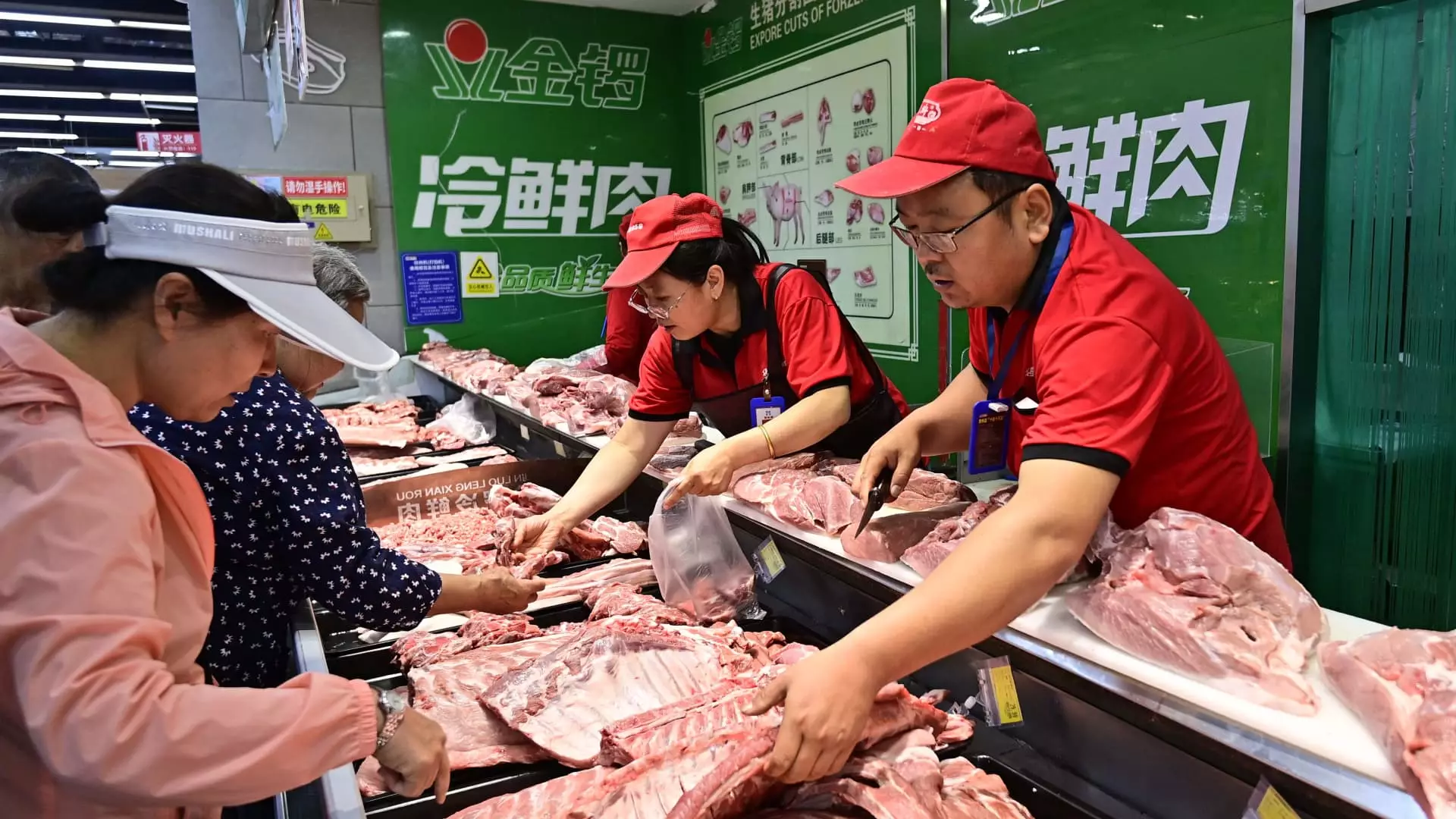China’s recent consumer price inflation data for June showed a rise of only 0.2% from a year ago, missing expectations set by analysts. The consumer price index was anticipated to increase by 0.4%, indicating a significant shortfall in the actual figures. This unexpected outcome raises concerns about the state of the Chinese economy and its potential impact on global markets.
In contrast to consumer prices, producer prices fell by 0.8% year-on-year, aligning with forecasts. However, the risk of deflation in China remains a pressing issue. The weak domestic demand has contributed to this situation, with prices failing to meet projected levels. The core CPI, which excludes volatile food and energy prices, rose by 0.6% year-on-year in June, underscoring the challenges faced by the Chinese economy.
Notably, pork prices surged by 18.1% from a year ago, while beef prices experienced a significant decline of 13.4%. These fluctuations in commodity prices highlight the volatility within the Chinese market and its potential repercussions. Tourism prices also saw an increase of 3.7% year-on-year in June, albeit lower than the previous month. Such price movements can impact consumer behavior and overall economic stability.
According to Zhiwei Zhang, chief economist at Pinpoint Asset Management, the risk of deflation looms large over China due to weak domestic demand. This factor has hindered inflation levels and poses a threat to the country’s economic growth. Zhang emphasizes the reliance on exports to drive growth in the first half of the year, underscoring the need for sustainable measures to counteract inflation concerns. The upcoming release of trade data for June will provide further insights into China’s economic performance.
In contrast to major economies like the United States, where inflation rates have remained elevated, China’s struggle with low inflation reflects unique challenges. The disparity in pricing trends between nations underscores the complexities of global economic dynamics. As China navigates through these inflationary pressures, it must adopt strategic measures to foster growth and stability in the long run.
China’s recent inflation data reveals underlying vulnerabilities within its economy, signaling the need for proactive measures to address deflation risks and stimulate domestic demand. The fluctuating prices and subdued inflation levels underscore the intricate balance required to sustain economic stability amidst global uncertainties. By assessing these inflation trends and implementing effective policies, China can mitigate potential threats and chart a path towards sustainable growth.

